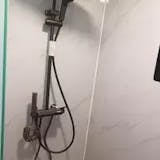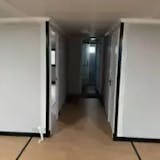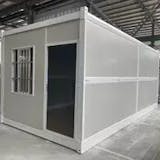Prefabricated homes, also known as prefab homes, are gaining popularity in urban areas like Chicago due to their cost-effectiveness, energy efficiency, and quick construction times. These homes are built off-site and assembled on location, offering a modern and efficient solution to housing needs. This article explores the pros and cons of prefabricated homes in Chicago, helping you make an informed decision about whether this housing option is right for you.
What Are Prefabricated Homes?
Definition and Types
Prefabricated homes are built in sections or modules in a factory setting and then transported to the building site for assembly. There are several types of prefab homes, including:
- Modular Homes: Built in sections that are transported and assembled on-site.
- Panelized Homes: Constructed from pre-made panels.
- Manufactured Homes: Entirely built in a factory and transported to the site.
- Tiny Homes: Small, efficient homes that can be prefabricated.
Key Features
Prefab homes are known for their:
- Efficiency: Quick construction and less waste.
- Customization: Various design options and layouts.
- Quality Control: Factory-built under controlled conditions.
Pros of Prefabricated Homes in Chicago
1. Cost Savings
Prefab homes often cost less than traditional homes due to reduced labor costs and economies of scale in factory production. These savings can be significant, making homeownership more accessible in a city like Chicago where real estate prices are high.
2. Energy Efficiency
Many prefabricated homes are designed with energy efficiency in mind. They often include high-quality insulation, energy-efficient windows, and modern HVAC systems, reducing energy consumption and lowering utility bills.
3. Quick Construction
The construction process for prefab homes is much faster than traditional building methods. Since the homes are built in a factory while site preparation occurs simultaneously, the overall timeline from start to finish is significantly reduced.
4. Sustainable Building Practices
Prefab homes typically produce less waste during construction and use sustainable materials, aligning with eco-friendly building practices. This is an attractive feature for environmentally conscious buyers in Chicago.
5. Flexibility and Customization
Prefab homes offer a high degree of customization, allowing buyers to choose from various designs, finishes, and layouts to suit their preferences and needs.
Cons of Prefabricated Homes in Chicago
1. Zoning and Building Codes
One of the main challenges of prefabricated homes in Chicago is navigating local zoning laws and building codes. These regulations can be complex and vary by neighborhood, potentially limiting where prefab homes can be placed.
2. Financing and Insurance
Securing financing and insurance for prefab homes can be more challenging than for traditional homes. Some lenders and insurance companies may have specific requirements or may be unfamiliar with prefab construction, leading to higher rates or additional hurdles.
3. Transportation and Assembly Costs
While the initial construction costs of prefab homes are lower, transportation and assembly can add to the overall expense. Transporting large modules through urban areas and assembling them on-site requires careful planning and additional costs.
4. Resale Value
The resale value of prefabricated homes can be lower than that of traditional homes. Potential buyers may have concerns about the durability and longevity of prefab construction, affecting the marketability of these homes.
5. Limited Design Options
Although prefab homes offer customization, they may have fewer design options compared to traditional custom-built homes. Buyers looking for highly unique or complex designs might find prefab homes limiting.
Legal Considerations in Chicago
Zoning and Permits
Before purchasing a prefabricated home in Chicago, it's essential to understand the zoning laws and permit requirements. Consulting with local authorities and experienced builders can help navigate these regulations and ensure compliance.
Building Codes
Prefab homes must meet all local building codes, which can vary significantly. Ensuring that your prefabricated home adheres to these standards is crucial for safety and legality.
Conclusion
Prefabricated homes present a viable and attractive option for homebuyers in Chicago, offering cost savings, energy efficiency, and quick construction. However, potential buyers should be aware of the challenges, including zoning regulations, financing, and transportation costs. By understanding the pros and cons, you can make an informed decision and determine if a prefabricated home is the right choice for you.
FAQs
| Question | Answer |
|---|---|
| What are the benefits of prefabricated homes in Chicago? | Cost savings, energy efficiency, quick construction, sustainable building practices, and customization. |
| What challenges do prefab homes face in Chicago? | Navigating zoning laws, securing financing, transportation and assembly costs, resale value, and limited design options. |
| How do prefab homes contribute to sustainable living? | They produce less waste, use sustainable materials, and are designed for energy efficiency. |
| What types of prefabricated homes are available? | Modular homes, panelized homes, manufactured homes, and tiny homes. |
| Are prefab homes allowed in all parts of Chicago? | Zoning laws and building codes vary by neighborhood, so it's important to check local regulations. |
| Can I customize a prefabricated home? | Yes, prefab homes offer various customization options for designs, finishes, and layouts. |








